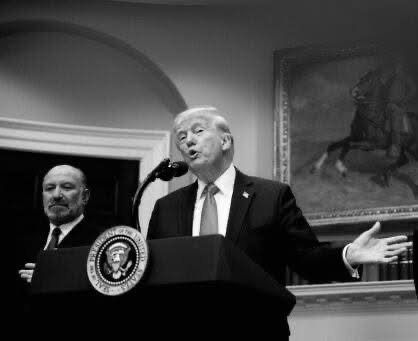President Trump’s commerce secretary has suggested that the administration could scrap federal income taxes.
Howard Lutnick, who was confirmed in his role on Wednesday, said the White House’s goal was to abolish the Internal Revenue Service (IRS) and instead rely on Treasury coffers being filled by tariffs collected from other countries.
In 2024 the US federal government collected $4.92 trillion. The biggest source of revenue — about 49 per cent — was from individual income taxes.
“Think about it, Donald Trump announces the External Revenue Service, and his goal is very simple … his goal is to abolish the Internal Revenue Service and let all the outsiders pay,” Lutnick told Fox News.
He also indicated that Elon Musk’s effort to cut waste and fraud from government departments would allow taxes to be cut. Musk said in a separate Fox News interview on Monday that he would cut the national debt by $1 trillion. It had previously been suggested that his Department of Government Efficiency, or Doge, would trim $2 trillion from the budget.
Lutnick said he would also “get rid of all these tax scams that hammer against America, and we’re going to raise a trillion dollars of revenue”.
The creation of an External Revenue Service is an idea floated by Trump. He has announced delayed tariffs on Canada and Mexico, as well as imposing charges on Chinese imports. Beijing has reacted in kind. Last week the president said he would introduce reciprocal tariffs on all countries that imposed tariffs on American goods. That is likely to include those countries that have a VAT regime in place on imports.
The External Revenue Service would then manage the income into the US and allow the government to cut taxes, or as Lutnick envisages, abolish them.
The Federal Reserve warned in the minutes of its January meeting that Trump’s tariff policy could lead to higher inflation. “Business contacts in a number of districts had indicated that firms would attempt to pass on to consumers higher input costs arising from potential tariffs,” the minutes said.
Speaking in Australia, however, Christopher Waller, a member of the Federal Reserve Board of Governors, said that the tariff policy would “only modestly increase prices and in a non-persistent manner”.


